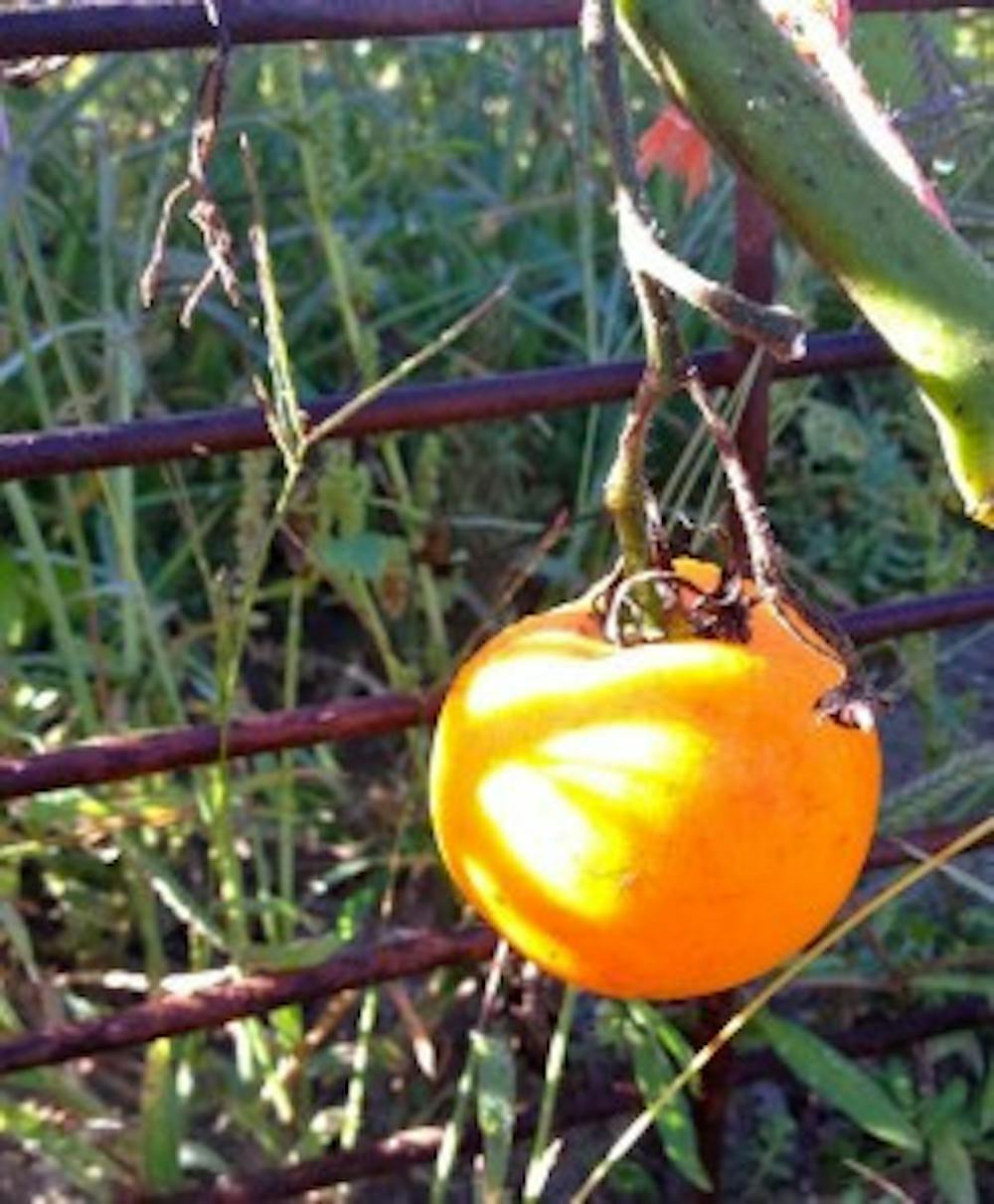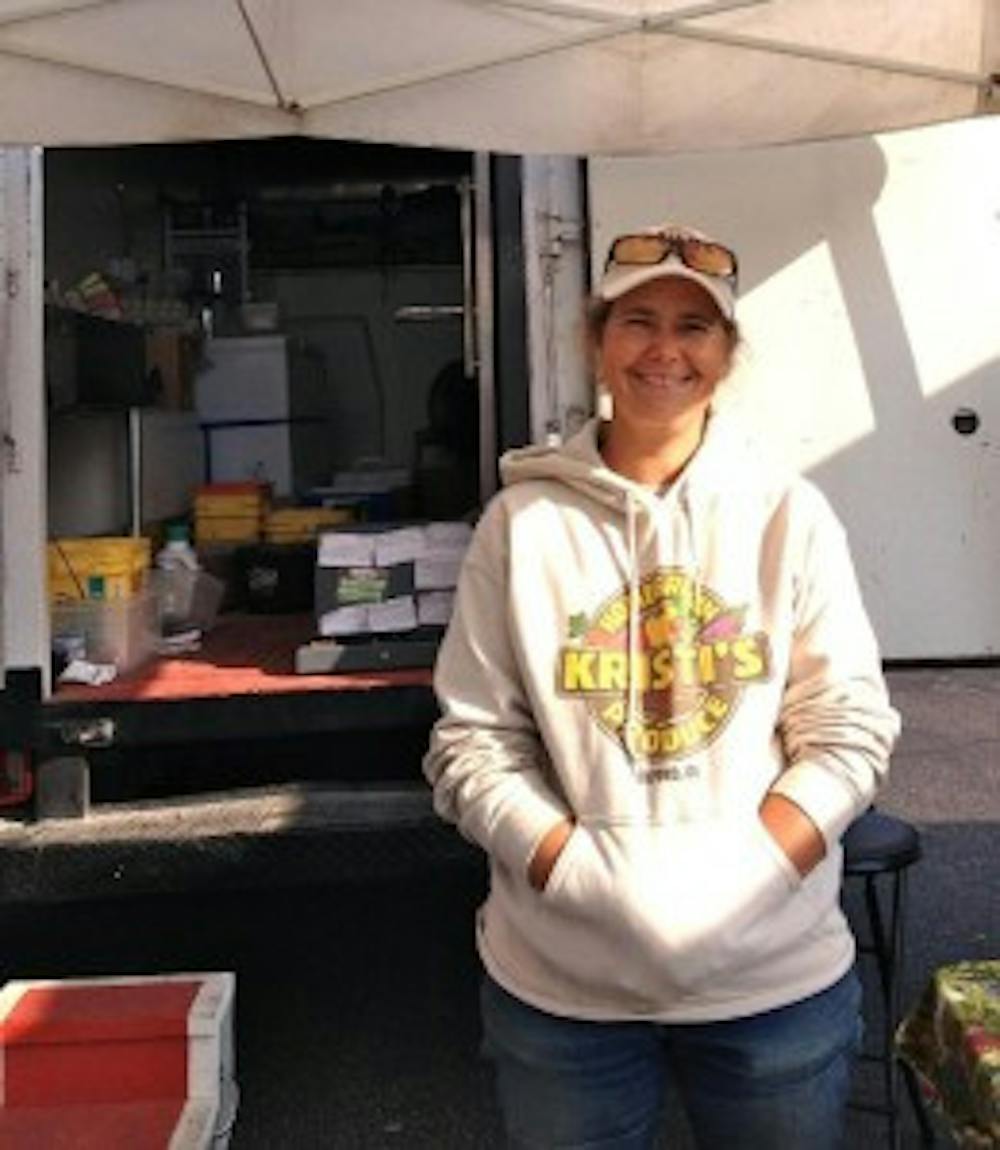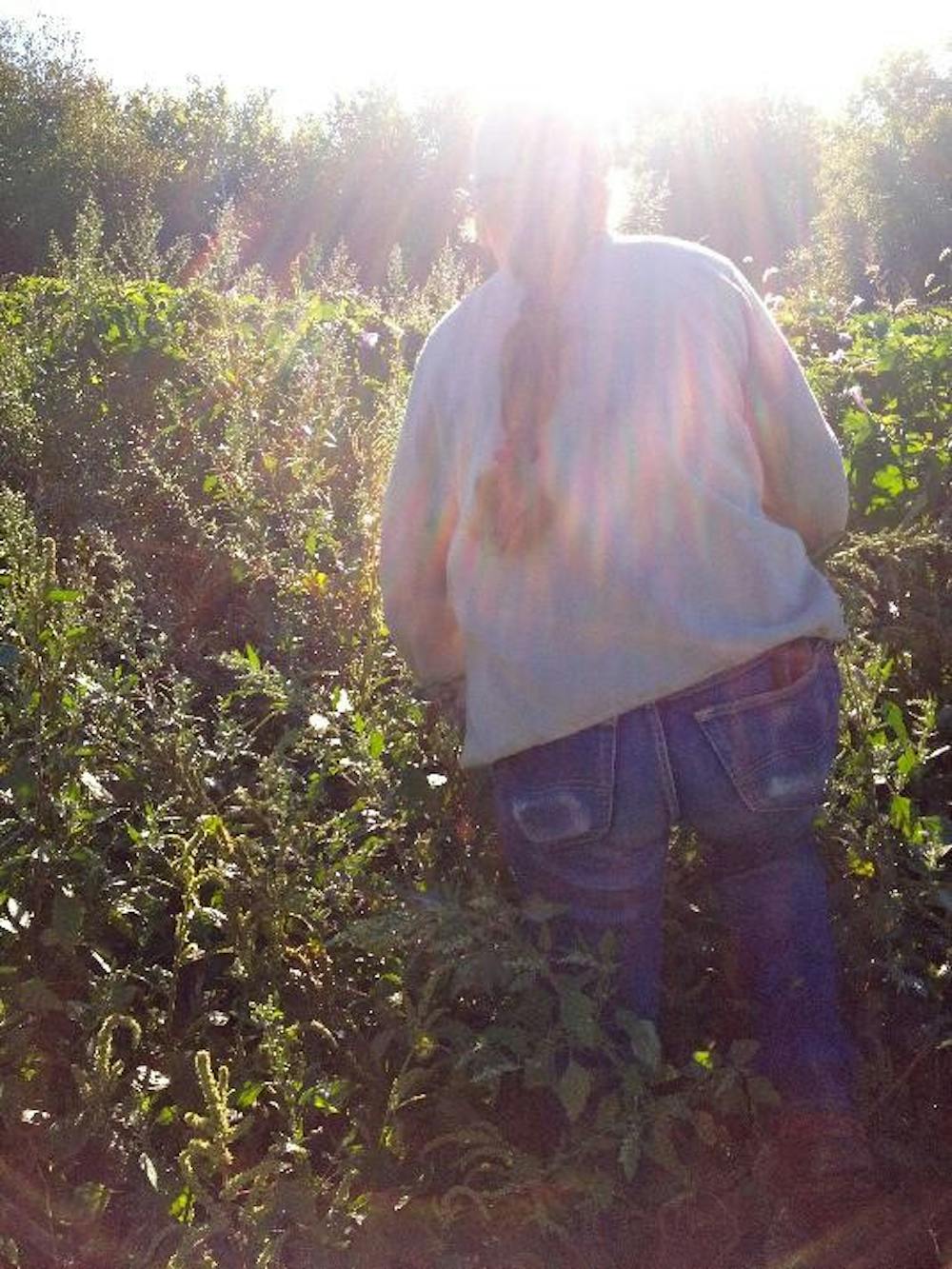
I visited Kristi’s farm on a perfect late September day. Not a single cloud marked the vast, Maya blue sky. It was cold enough to feel like fall but warm enough to want to spend the entire day outdoors, taking in the heat that gently radiated off the sun.
Kristi is the owner and sole operator of 5 Oaks Organics, a certified organic farm. The term organic, as enforced by the USDA, guarantees that the food Kristi grows is free of toxic chemicals and man made additives; it is not genetically modified or irradiated, but is raised humanely without antibiotics. In addition to these restrictions, there are a slew of requirements Kristi must meet in order to keep her certification as well as a mountain of paperwork so exact that it could point a customer to the seed that grew any given tomato or parsnip they purchase.
I met Kristi for the first time at the Oxford farmers market. After sharing my enthusiasm for sustainable agriculture with her, Kristi happily answered my questions and talked about her business. I wanted to learn more, and Kristi seemed thrilled that I had taken an interest so we set up a time that I could come and see the farm for myself.
A few days later I pulled past her house through a partial wooden gate, and onto Kristi’s farm. Her house was built in 1836. It has no heat save for a single wood-burning stove, very little electricity, and lacks a kitchen.
I parked my car and wandered towards a small, sturdy looking red barn. I was greeted by Nutmeg, a Pot-bellied pig so fat I was shocked that she could walk.
Kristi must have heard me conversing with Nutmeg because she poked her head out of the barn to invite me inside where I met Jay, a very shabby looking 33-year-old horse.
Although you would never know by looking at him, Jay was quite the competitor back in the day, according to Kristi. Inside the barn I also met two workhorses, a riding horse, and 14 sheep as countless cats skirted by or peered down from the ceiling beams.
As Kristi showed me around the barn I asked what her daily routine was like. “First” she said jokingly, “we deal with the disasters”. Dealing with disaster that day meant cleaning up from the night before, when Kristi returned to the farm after working a long day at the market to find that Nutmeg and the sheep had escaped and managed to get into a bag of seed.
The tour of the barn was followed by a tour of the rest of the grounds, which were much larger than I had anticipated. Kristi had a story for every crop we walked past and I was captivated by what she had to say. We stopped to admire kale, peppers and eggplants. There was popping corn, onions, shallots, purple cocoa beans, and much, much more. We observed buckwheat, the remains of a strawberry plant that was devoured when the sheep escaped on another occasion, and a single stalk of asparagus that Kristi was having a difficult time growing.
As we walked Kristi talked candidly about life on the farm. She told me about projects that were too big for her to take on alone and how as a woman, asking for help often means being treated like a two-year-old. She talked openly about the uncertainty of her future. Currently living month-to-month and barely breaking even on her trips to farmers markets, Kristi may not be able to stay at her house and is facing the possibility of having to leave her hard work and animals behind.
We chatted about the frustration of trying to compete with bigger, non-organic farms. I asked if people appreciate what she is doing which led to a story about people who come to her because they have cancer or another chronic disease and have realized, too late, that they should have been eating more nutritious foods.
Some of the most extraordinary things she said to me during my visit were about her mission to transition to crops that are better for the earth. Vegetables take too many nutrients out of the soil and require too much water and Kristi would be much happier to grow crops that are less strenuous on her as well as the environment. She wants to do more for the earth, as if she’s not sacrificing enough already by growing her food organically.
Kristi’s lifestyle is not for everyone. Working two full days on the farm and spending the other five trekking to markets where she attempts to make a living one eggplant at a time seems like an exhausting and endless uphill battle. But she doesn’t seem bothered or discouraged. In fact, she seems genuinely happy.
Opinion: An Organic Lifestyle

